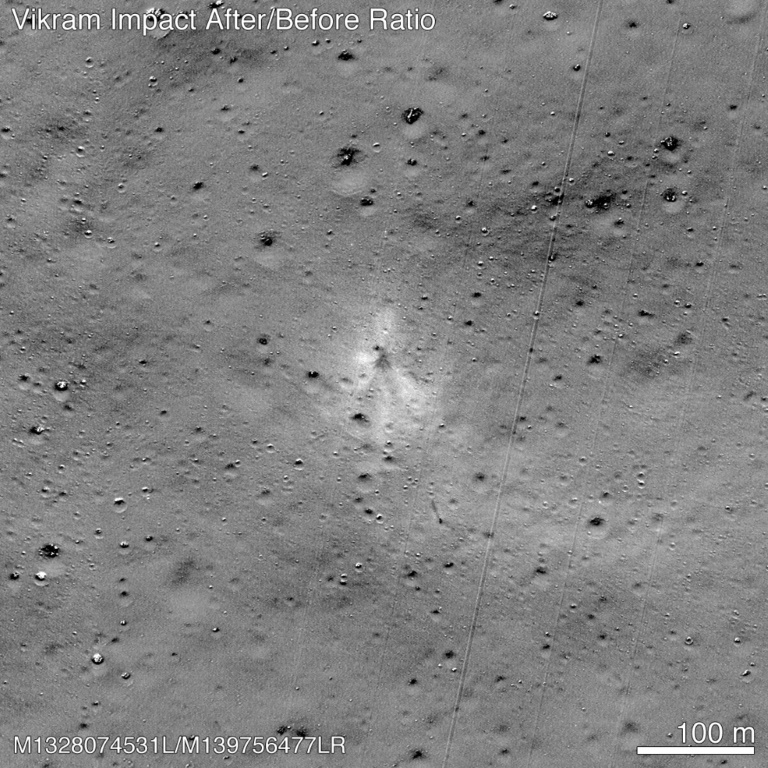India’s Vikram lunar lander, which crashed on its final approach to the Moon’s surface in September, has been found thanks in part to the sleuthing efforts of an amateur space enthusiast.
NASA made the announcement on Monday, releasing an image taken by its Lunar Reconnaissance Orbiter (LRO) that showed the site of the spacecraft’s impact (September 7 in India and September 6 in the US).
A version of the picture was marked up to show the associated debris field, with parts scattered over almost two dozen locations spanning several kilometers.
In a statement, NASA said it released a mosaic image of the site on September 26 (but taken on September 17), inviting the public to compare it with images of the same area before the crash to find signs of the lander.
Read Also: China Retaliates Against US Over Hong Kong Unrest
The first person to come up with a positive identification was Shanmuga “Shan” Subramanian, a 33-year-old IT professional from Chennai, who told AFP that NASA’s inability to find the lander on its own had sparked his interest.
 AFP / Sabrina BLANCHARDLanding sites for probes and crewed missions on the Moon, including the planned landing point of Indian lunar lander Chandrayaan 2 Vikram, which crashed in September.
AFP / Sabrina BLANCHARDLanding sites for probes and crewed missions on the Moon, including the planned landing point of Indian lunar lander Chandrayaan 2 Vikram, which crashed in September.“I had side-by-side comparison of those two images on two of my laptops… on one side there was the old image, and another side there was the new image released by NASA,” he said, adding he was helped by fellow Twitter and Reddit users.
“It was quite hard, but (I) spent some effort,” said the self-professed space nerd, finally announcing his discovery on Twitter on October 3.
NASA then performed additional searches in the area and officially announced the finding almost two months later.
“NASA has to be 100% sure before they can go public, and that’s the reason they waited to confirm it, and even I would have done the same,” said Subramanian.
Blasting off in July, emerging Asian giant India had hoped with its Chandrayaan-2 (“Moon Vehicle 2”) mission to become just the fourth country after the United States, Russia and regional rival China to make a successful Moon landing, and the first on the lunar south pole.
The main spacecraft, which remains in orbit around the Moon, dropped the unmanned lander Vikram for a descent that would take five days, but the probe went silent just 2.1 kilometers above the surface.
Days after the failed landing, the Indian Space Research Organization said it had located the lander, but hadn’t been able to establish communication.
AFP NEWS
